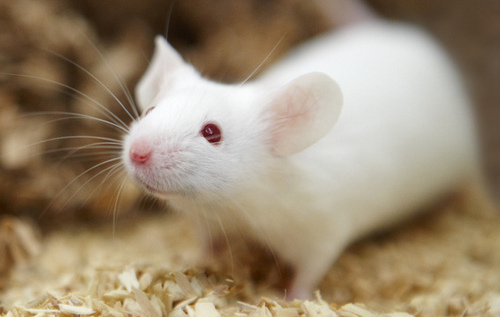Magnetic mind control attracts mice

Mariela Antunes
According to Biomedical Scientist, Ali Guler, “This is, to our knowledge, the first demonstration of bona fide magnetic control of the nervous system”. They are continuing to explore the brain’s circuit system to develop a stronger connection- hoping that they may use it on a stronger neural system. Soon enough, these magnets could be the entrance into a new era of robotic specimen.
April 8, 2016
Nature Neuroscience researchers have declared their new-found ability to control the minds of mice by communication through magnetic fields on March 7. Since they now have the capability to drive these mice around, along with other animals as well, ideas about an easier route on pest control arises. Which brings the inevitable thought of: “What would happen if the process developed and there was a possibility of controlling a human’s mind through magnetic forces too?”
Over the years, scientists have invented other ways to control brain circuitry either through light signals or drugs, A.K.A opto and chemo genetics. Although these methods work, there are some drawbacks that make them appear to be not-so-reliable: light signals could not fully penetrate through the deep tissue, thus dimming their usefulness in some parts of the brain, while drugs could travel deep enough but took quite some time to maneuver their way to the correct areas of the brain. However, the researchers have reported that “magnetic fields can quickly and cleanly infiltrate a noggin,” which of course gives the mind control process less complication.
While the topic does possess beneficiary content, controversial concerns have affected others due to the conditions of the animals being tested upon. A widely known animals’ rights organization, PETA, expressed their opinion on animal testing by retorting, “They [tested subjects] languish in pain, ache with loneliness, and long to be free. Instead, all they can do is sit and wait in fear of the next terrifying and painful procedure that will be performed on them”. Well of course these animals are used to test ideas and risky products for us, since they are nearly not as significant as we are, right? Incorrect.
Mind control through the use of magnets may seem as a possibility to simplify pest control procedures, or ease the nerves on possible dangers, but take in consideration the outcomes that may flourish from the idea. Already, the neuroscience team are coming up with a way to “explore more of the brain’s circuit system” to achieve a pathway into a “stronger neural system”. Perhaps the domestic cat, dog…human? Knowingly enough, science may have had positive contributions in the past, but altering with the brain’s traditional function may just be an oncoming downfall.





